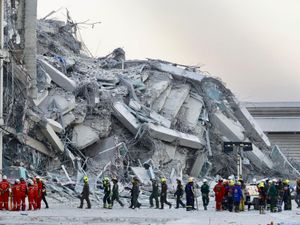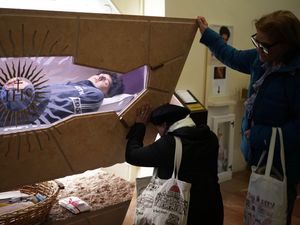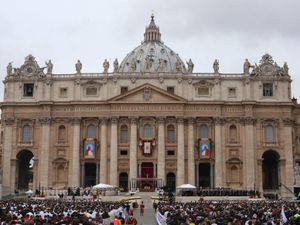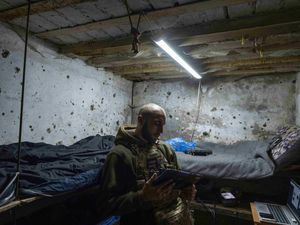Australian prime minister calls May election
Scott Morrison announced that Australia would go to the polls on May 18.
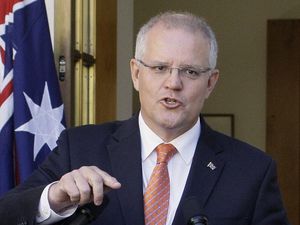
Australia’s prime minister has called an election on May 18 that will be fought on issues including climate change, asylum seekers and economic management.
“We live in the best country in the world,” Scott Morrison told reporters after advising the governor-general to authorise the election.
“But to secure your future, the road ahead depends on a strong economy. And that’s why there is so much at stake at this election,” he added.
Mr Morrison’s conservative coalition is seeking a third three-year term. But Mr Morrison is the third prime minister to lead a divided government in that time and only took the helm in late August.
Opinion polls suggest his reign will become one of the shortest in the 118-year history of Australian prime ministers on election day.
The polls suggest centre-left opposition leader Bill Shorten will become the eighth prime minister since the country plunged into an extraordinary period of political instability in 2007.
The election pits Mr Shorten, a former labour union leader who has presented himself as the alternative prime minister for the past six years, against Mr Morrison, a leader who the Australian public is still getting to know.
Mr Morrison is seen as the architect of Australia’s tough refugee policy that has all but stopped the people-smuggling traffic of boats from south-east Asian ports since 2014, overseeing the secretive military-run Operation Sovereign Borders during his time as minister for immigration and border protection.
The policy has been condemned by human rights groups as an abrogation of Australia’s responsibilities as a signatory to the United Nations Refugee Convention.
Asylum seekers from the Middle East, Africa and Asia would typically disable or sink their boats when intercepted by patrol ships in waters north of Australia so that the Australian crews would have to rescue them rather than turn the boats away.
Under the new regime, the asylum seekers were placed in motorised life boats that were towed back to Indonesia. The Indonesian government complained the policy was an affront to Indonesian sovereignty.

The government has also maintained a policy adopted in the final months of a Labour government in 2013 of sending boat arrivals to camps on the Pacific island nations of Papua New Guinea and Nauru. Those who attempt to reach Australia by boat are told they will never be allowed to settle there.
Mr Morrison remains proud of virtually stopping people-smuggler boat traffic and has a trophy shaped like a people-smuggler’s boat in his office inscribed with “I Stopped These”.
Labour has promised to maintain the policy of banishing boat arrivals to the islands, but says it would give priority to finding permanent homes for the asylum seekers who have languished in island camps for years.
The conservative coalition argues that the boats would start coming again because a Labour government would soften the regime.
Climate change policy, meanwhile, is a political battlefield in a country that is the world’s largest exporter of coal and liquefied natural gas and has been one of the world’s worst greenhouse gas emitters on a per capita basis because of its heavy reliance on coal-fired power generation.
Disagreement over energy policy has been a factor in the last six changes of prime minister.
Labour prime minister Julia Gillard introduced a carbon tax in 2012, but Conservative prime minister Tony Abbott scrapped it two years later.
The coalition is torn between politicians who want polluters to pay for their greenhouse gas emissions and those who reject any measures that would increase household power bills.
The government aims to reduce Australian greenhouse gas emissions by 26% to 28% below 2005 levels by 2030, while Labour has promised a more ambitious target of a 45% reduction in the same time frame.
The government warns that Labour’s emissions reduction plan would wreck the economy.
The coalition also argues that Labour would further damage the economy with its policy of reducing tax breaks for landlords as property prices fall in Australia’s largest cities, Sydney and Melbourne.
Mr Morrison boasts that the conservative administration John Howard led delivered 10 annual surplus budgets and paid off all federal government debt before the government changed at the 2007 election.
The government brought forward its annual budget blueprint by a month to April 2 and revealed a plan to balance Australia’s books in the next fiscal year for the first time in 12 years.
Labour promised to deliver a surplus budget in the year starting July 1, but has yet to detail how it would achieve this goal.
Labour has also promised to spend an additional 2.3 billion Australian dollars (£1.3 billion) over four years on covering treatment costs of cancer patients.

